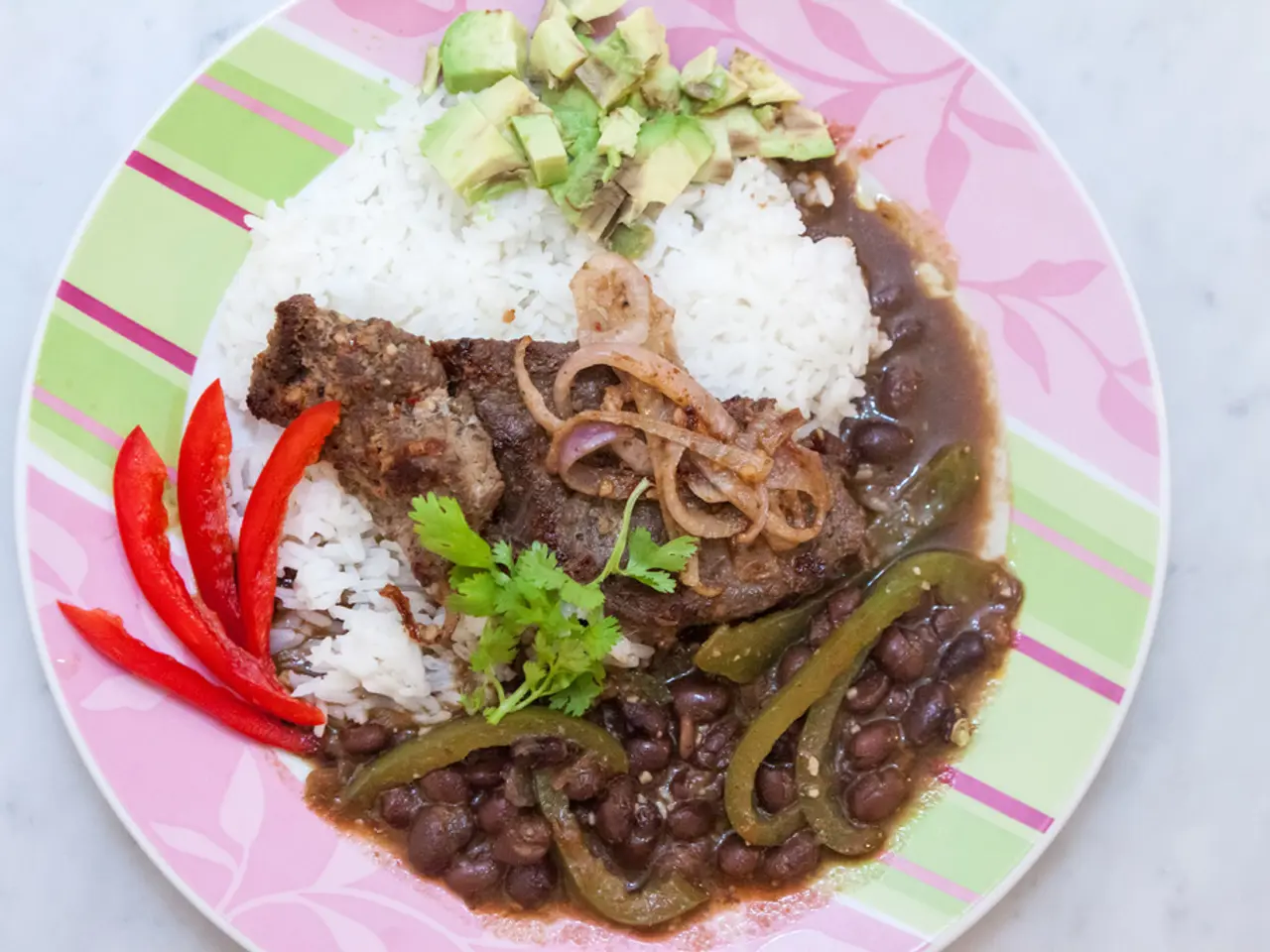Nutrition for amateur sports enthusiasts: optimal eating plans for recreational athletes
Staying healthy and performing at your best in sports requires a well-balanced diet. Here are some tips for athletes and those starting out in sports to transition to a healthy diet that supports long-term performance and overall well-being.
Balancing Macronutrients
For optimal energy, muscle recovery, and satiety, it's essential to consume a balanced mix of complex carbs, lean proteins, and healthy fats. Whole grains, fruits, chicken, fish, legumes, avocado, nuts, and olive oil are all excellent choices. This balance stabilizes blood sugar and provides sustained energy.
Planning Meals Around Training
To support muscle adaptation and recovery, it's recommended to include protein-rich foods 3-5 times per day. The timing of meals should align with training needs, and sometimes even practicing training with low carbohydrate availability can enhance adaptations under expert guidance.
Pre-Event Meals
Testing and personalizing pre-event meals is crucial. Ideally, these meals should be rich in easy-to-digest carbs, moderate protein, and low fat/fiber, consumed early enough before sleep to aid rest.
Consistent Routines
Developing consistent routines and "rituals" around meals, especially before races or intense training, can help reduce anxiety and aid body adaptation.
Hydration and Fluid Balance
Paying particular attention to fluid balance is important, especially with increased physical exertion. Through sweat, minerals such as calcium, magnesium, or iron are lost, which must be replenished using mineral water or tap water with a high mineral content.
Avoiding Extremes
Avoid extremes like overhydration and alcohol near training or competitions, as they can impair hydration balance, sleep quality, and performance.
Embracing Whole Foods
Incorporating whole, minimally processed foods is beneficial for better nutrient density, metabolic health, and to avoid insulin resistance linked to refined carbs and sugars.
Flexible Dietary Approaches
Gradually shifting to flexible dietary approaches such as a flexitarian model that emphasizes plant proteins and whole foods can enhance strength and agility while allowing dietary variety.
Adaptation Over Time
As life phases change, it's important to adapt your nutrition. Focus on what practical, sustainable habits fit your lifestyle, whether you're a post-college athlete or just starting out.
For specific sports like football, running, or strength training, it's best to eat pasta or rice with a little turkey meat before training, and drink fruit juice with water or mineral water after training. For football and running, eating egg, raw vegetables, or yogurt before training, and consuming protein-rich foods like meat or dairy products after training is recommended.
It's also advisable to check beforehand how many calories a specific sport burns in the given time and adjust your diet plan accordingly. After training, consuming protein and a small amount of carbohydrates helps replenish depleted energy stores and supports muscle growth and weight loss. Before training, it's best to refrain from eating about two hours before exercise. If this is not possible, consume easily digestible and low-fat foods that provide carbohydrates and proteins. During training, it's best to avoid eating so your energy can be focused on weight loss and muscle building.
Remember, the increased energy consumption from exercise is often overestimated, as physical activities usually don't burn as many calories as assumed.
Consulting with sports dietitians for personalized advice can further optimize these transitions. By following these tips, athletes can create a healthy diet pattern that supports long-term sports performance and overall health.
- A well-balanced diet for athletes and those starting in sports should include a mix of complex carbs, lean proteins, and healthy fats, with examples such as whole grains, fruits, chicken, fish, legumes, avocado, nuts, and olive oil.
- For optimal performance during sports, it's crucial to consume protein-rich foods 3-5 times per day, with the timing of meals being aligned with training needs, and sometimes practicing training with low carbohydrate availability can enhance adaptations.
- Pre-event meals should be rich in easily digestible carbs, moderate protein, and low fat/fiber, consumed early enough before sleep to aid rest, and for specific sports like football, running, or strength training, consuming pasta or rice with a little turkey meat before training can be beneficial.







